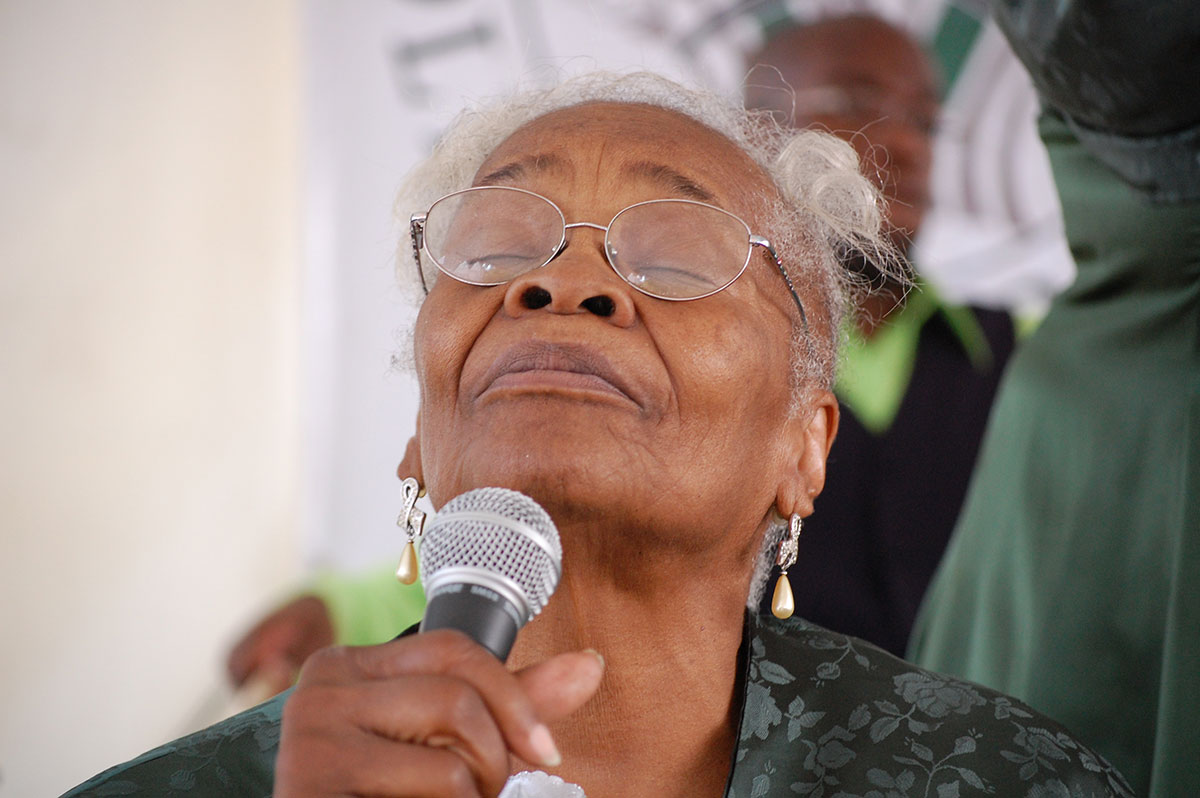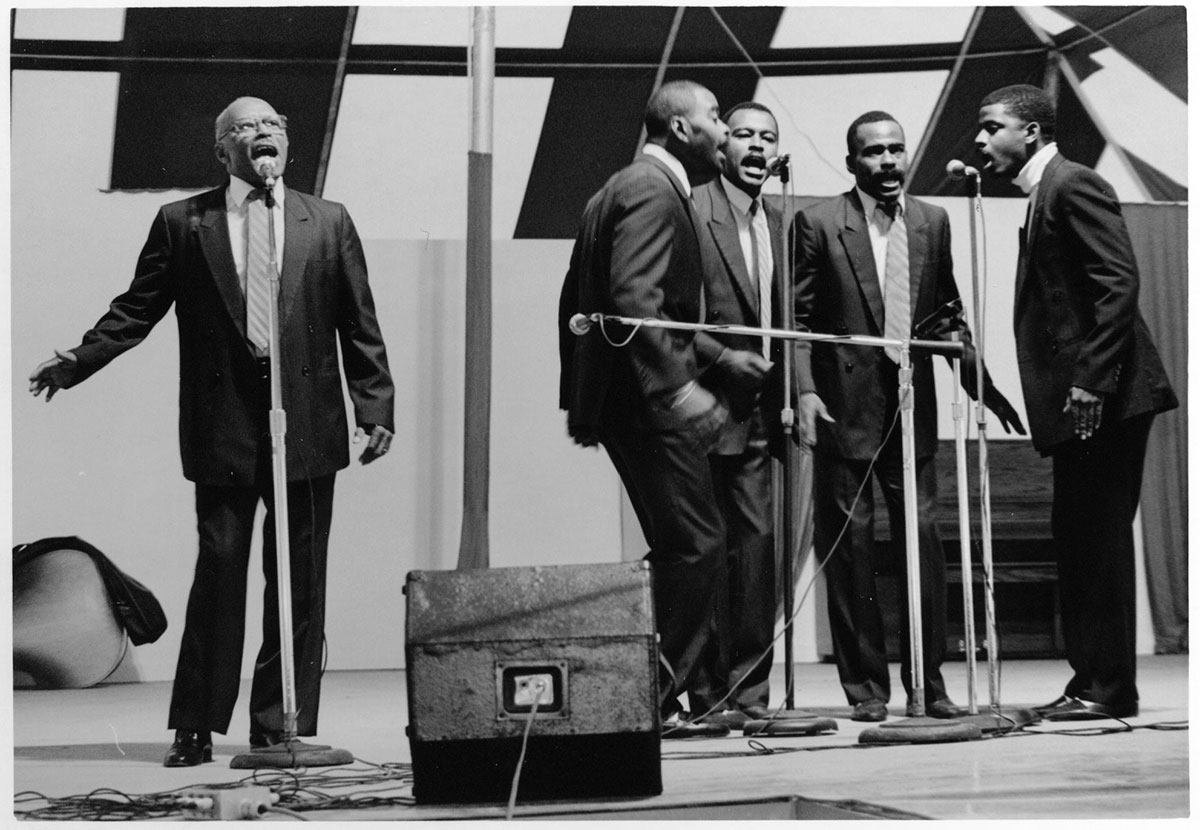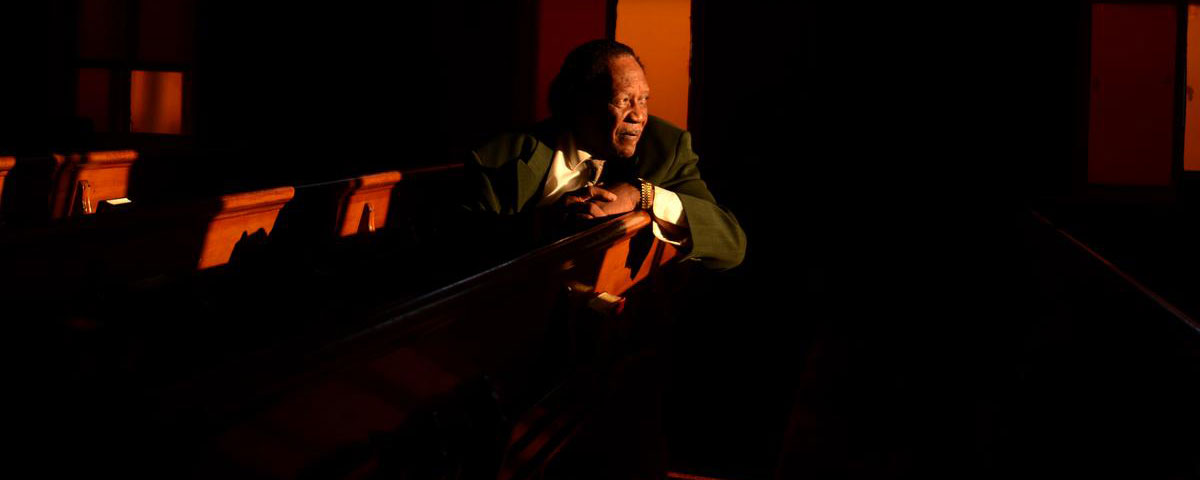The University of Virginia-affiliated Virginia Foundation for the Humanities joined organizations like the Smithsonian Institutes and Carnegie Hall this month to present a new online archive of African-American history. The Google Cultural Institute’s Black History and Culture exhibit is a digital collection of some of the most important pieces of cultural heritage from around the country.
For its contribution to the collection, the Virginia Foundation for the Humanities turned to its Virginia Folklife Program, which has long documented the commonwealth’s rich history of gospel music.
“Virginia is really blessed with this incredible tradition of gospel music across the state, so we thought that was a good area of focus,” Jon Lohman, the Folklife Program’s director, said. “For the African-American community in particular, it’s such a vibrant aspect of culture and expression.”
The Virginia Folklife Program is dedicated to the preservation and presentation of Virginia’s cultural heritage, and it has worked with many talented musicians over the years. For the Google exhibit, the program leaders decided to focus on three of gospel’s heaviest hitters: the late Rev. Maggie Ingram, the Paschall Brothers and Charlie McClendon. As all three acts come from the state’s Tidewater region, the exhibit is titled “Eastern Virginia Gospel.”

Richmond’s “Queen of Gospel,” Maggie Ingram, performs with the Ingramettes in 2010. Credit: Cary Ferguson (VFH Staff)
“You can’t think about gospel tradition in America without thinking about people like Maggie Ingram, and we have such a close relationship with her family that it was just an obvious choice,” said Pat Jarrett, media specialist for the Virginia Folklife Program.
Before she passed away in 2015, Ingram was often called “Richmond’s Queen of Gospel,” and her group, Maggie Ingram and the Ingramettes, has performed at such venues as the Kennedy Center and the American Folk Festival.
Ingram’s group and the Paschall Brothers have worked with the Virginia Folklife Program since the 1980s, not only to document their powerful style of song, but also to ensure that it is taught and passed down to future generations. Through the Folklife Apprentice program, they’ve spawned new musical acts and turned their own works into a lasting legacy.

The Paschall Brothers’ “Tidewater Quartet” performs on-stage together in 1987. Left to right: Frank Paschall Sr., Billy Paschall, Frank Paschall Jr., Tarrance Paschall Sr. and Renard Freeman. Credit: Blue Ridge Institute and Museum.
Few people realize what a large impact the Richmond, Hampton Roads and Norfolk area’s musical traditions had on gospel music in America. The Paschall Brothers’ style is especially representative of the unique sound that’s come out of Eastern Virginia. They sing in what’s known as a “Tidewater quartet,” an a cappella style that may include up to five or six performers singing in a four-part harmony.
“We wanted to really take a look at where gospel music came from, and the Tidewater quartets are some of the earliest gospel traditions here in Virginia,” Jarrett said.
These traditional African-American quartets have been performing across the commonwealth since as early as the mid-1800s and their popularity grew rapidly along Virginia’s coast in the century following the Civil War. Although they’ve rarely performed since the passing of Frank Paschall Jr. in 2011, the Paschall Brothers are among just a handful of modern quartets that have helped keep this tradition alive.
Throughout the 1950s and 1960s, the Tidewater region was also home to a growing R&B and soul scene. The special “Norfolk Sound” made it a mandatory stop for up-and-coming acts like Otis Redding and Booker T. and the MGs. Hampton Roads legend Charlie McClendon launched his career in those days, making a name for himself with his band, the Magnificents.
Today, McClendon is one of the most popular and respected gospel performers in Eastern Virginia. In 2012 and 2013, the Virginia Folklife Program caught up with McClendon to document his decades-long career and the impact of his original gospel songs. The Google exhibit includes its short documentary on McClendon and the story of his transition from R&B bandleader to director of music at the Goodwill Baptist Church in Hampton.
“We really want people to see that gospel is a living tradition in Virginia,” Jarrett said. “You can see Charlie today. You can go down to Goodwill Baptist in Hampton and hear him play with his band.”
The exhibit for the Cultural Institute is the foundation’s second collaboration with Google – they partnered to create new digital tours for Encyclopedia Virginia in 2015 – and Lohman hopes there will be more to come.
“It’s important to us not only to preserve these materials, but also to make sure that as many people as possible have access to them,” he said. “Google can help with that. They’re creating a service that takes advantage of their huge platform and allows these collections to reach an exponentially greater audience.”
Media Contact
Article Information
February 23, 2016
/content/uva-partners-google-preserve-virginias-african-american-gospel-traditions

